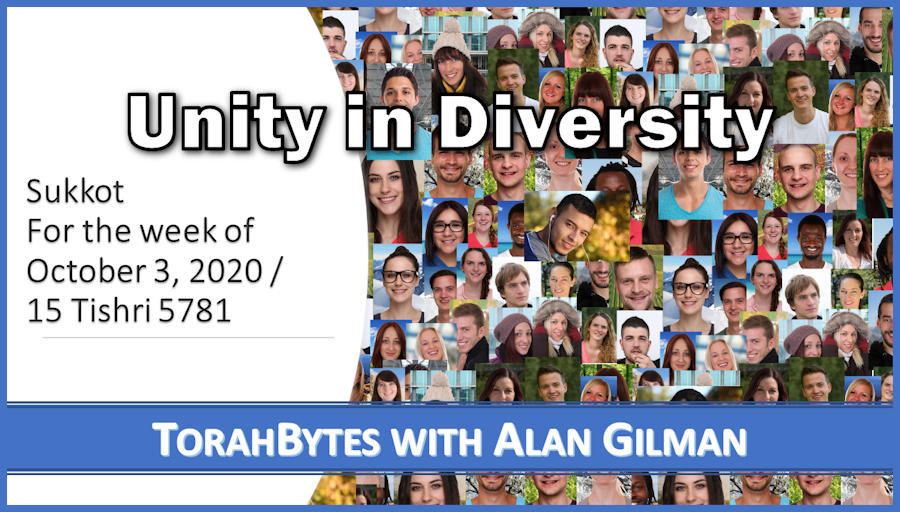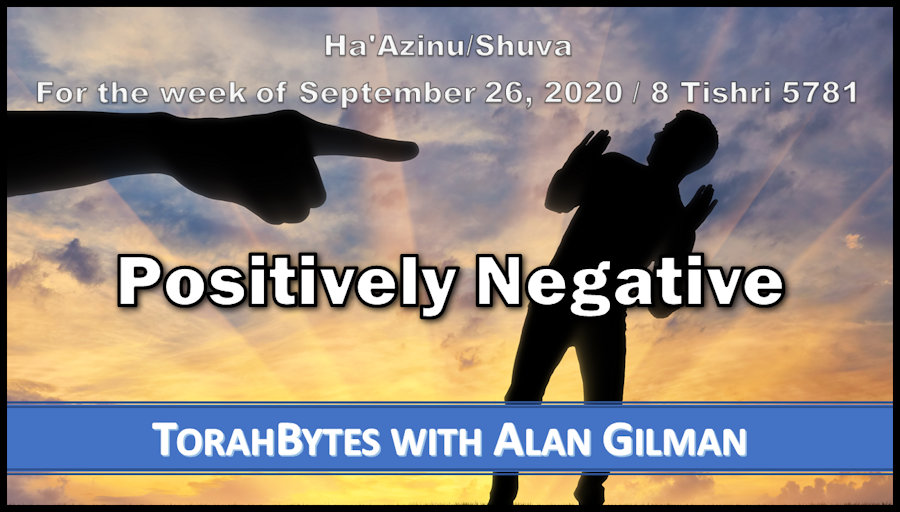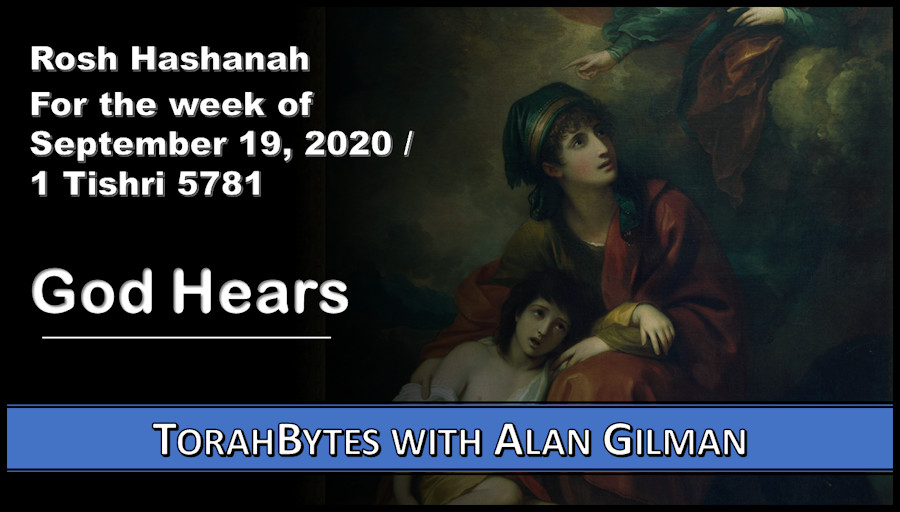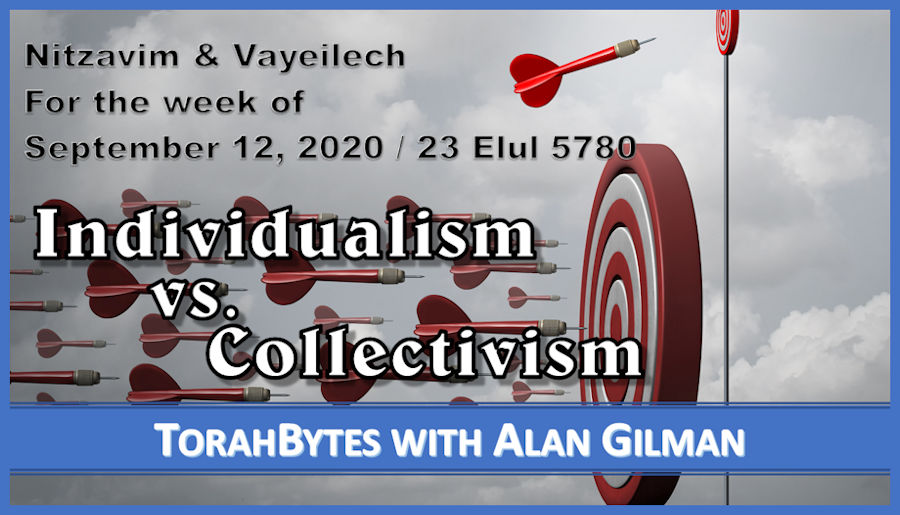For the week of October 3, 2020 / 15 Tishri 5781
Sukkot
Torah: Vayikra/Leviticus Lev 22:26 – 23:24; B’midbar/Numbers 29:12-16
Haftarah: Zechariah 14:1-21
Download Audio [Right click link to download]
Then everyone who survives of all the nations that have come against Jerusalem shall go up year after year to worship the King, the LORD of hosts, and to keep the Feast of Booths. And if any of the families of the earth do not go up to Jerusalem to worship the King, the LORD of hosts, there will be no rain on them. (Zechariah 14:16-17)
One of the most difficult issues that has faced Yeshua-followers—and not just Yeshua-followers, but the entire world—is the tension between unity and diversity with regard to the human family. From the beginning, the human family has been fractured, starting with God’s cursing of Adam and Eve, thus creating tension between males and females (see Bereshit/Genesis 3:16b), quickly followed by the murder of their son Abel, by his jealous brother, their firstborn, Cain (see Bereshit/Genesis 4:1-16). This explodes when, as a consequence of the misguided Babel building project, the world divides into people groups due to the confusion of languages (see Bereshit/Genesis 11:1-9).
Since then, most attempts to unify human beings have been by brutal tyrannies, which at best have been partial; fragile; destructive; and, obviously, temporary. Temporary, that is, until the proclamation of the Kingdom of God through the Good News of the Messiah Yeshua. God’s plan was always to rectify the disunity resulting from Babel, rooted in sin. God’s desire to make the human family one is a hallmark of biblical faith. Not only is it core to a genuine relationship to God in Yeshua, God’s Spirit poured out upon those who truly trust in the Messiah is the only power that can mend the systemic brokenness that continues to plague our planet.
Tragically however, the unity God is seeking to restore has been grossly misunderstood as uniformity. While I assume that no one even slightly aware of the biblical teaching on this subject actually believes we are all to be the same as each other, when it comes down to it, there’s underlying discomfort with diversity especially with regard to nationality or ethnicity.
Certainly, this is a much bigger subject than can be adequately covered in a short message like this. But let me try to provide something from this week’s readings that should powerfully inform our thinking on this matter. These readings are special for the first day of Sukkot (English: Booths or Tabernacles), Israel’s week-long harvest thanksgiving festival that also commemorates God’s provision and care of the people during the wilderness wanderings following the exodus from Egypt. As usual, whenever a major festival falls on Shabbat, the regular readings are replaced by special ones relevant to the occasion.
The Haftarah (reading from the Prophets) for the first day of Sukkot is from Zechariah. At the end of his book, the prophet provides some details for what the Bible understands as the “age to come.” That was Israel’s great expectation of God’s restoration of the creation when he would establish his rule on earth forever. One aspect of this, according to Zechariah, is in that time the nations would come to Jerusalem to celebrate Sukkot.
I am aware that such an idea evokes all sorts of questions, but I want to point out one thing: the nations come to Jerusalem. That means, at the restoration of all things, the nations still exist as defined entities. Some think this is reserved for a golden age that takes place between the time we live in now and the final restoration. The problem with this is the Bible doesn’t see it that way. The book of Revelation echoes Zechariah. At the end of Revelation, we are given a description of the new heavens and new earth (see Revelation 21:1). As part of this, a new Jerusalem comes down out of heaven to earth (see Revelation 21:2). This is clearly the age to come, the time when God sets everything to rights. We read the following:
And I saw no temple in the city, for its temple is the Lord God the Almighty and the Lamb. And the city has no need of sun or moon to shine on it, for the glory of God gives it light, and its lamp is the Lamb. By its light will the nations walk, and the kings of the earth will bring their glory into it, and its gates will never be shut by day—and there will be no night there. They will bring into it the glory and the honor of the nations. (Revelation 21:22-26)
Just as Zechariah predicted, the nations will still exist. Moreover, they will have an essential relationship to future Jerusalem. The unity of all peoples in no way homogenizes the people of the world into one singular nation. The unity of all peoples in the Messiah connects them with God’s purposes and plans in and through Israel without nullifying their unique distinctions.
Reckoning with our destiny as God’s family in such a way that retains national distinctives is a first step to the unity in diversity God calls us to have today.
Scriptures taken from the English Standard Version



